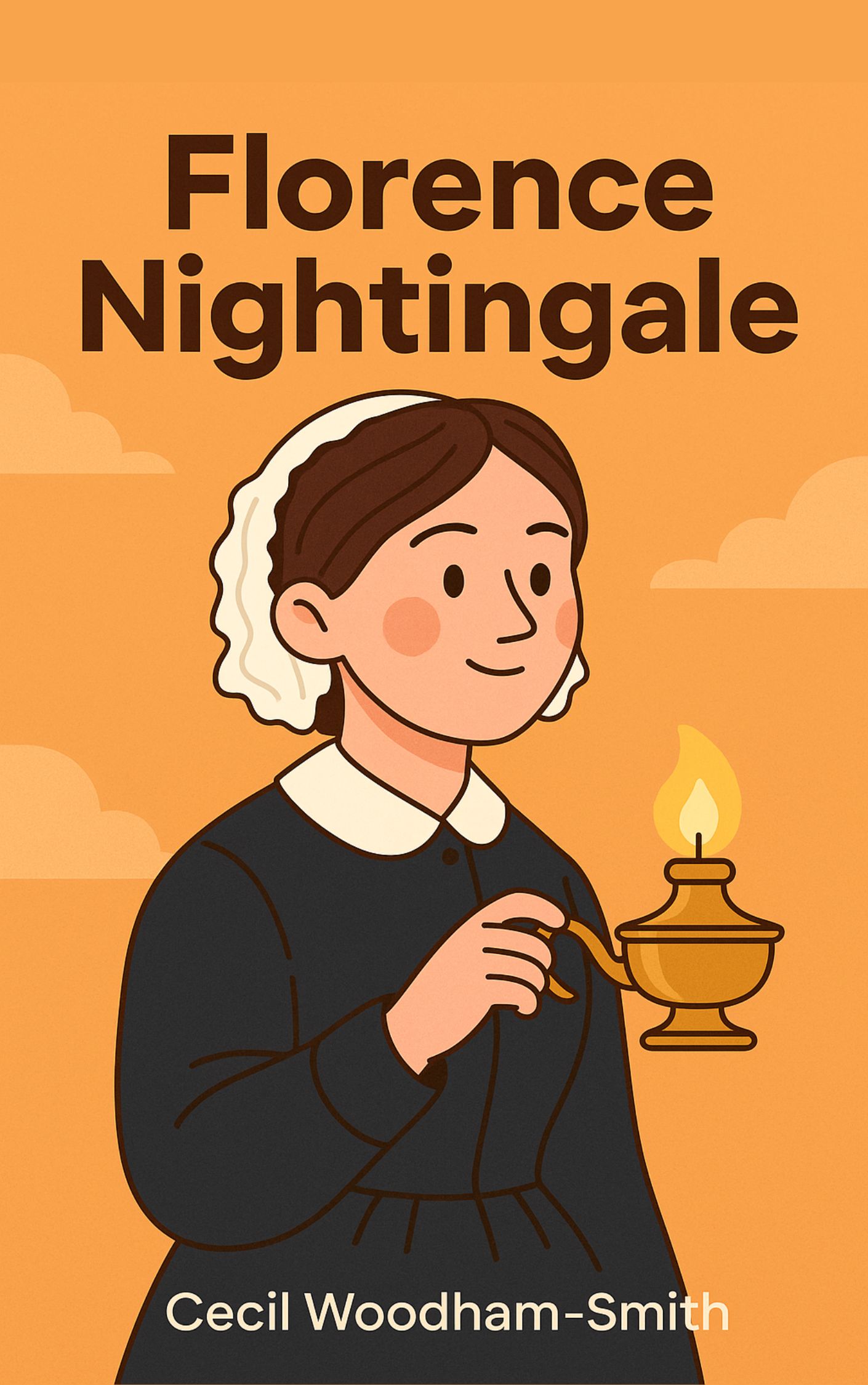Description
Florence Nightingale is remembered as one of the most remarkable women in history. Her name is forever linked with kindness, compassion, and the profession of nursing. But behind the title of “The Lady with the Lamp” lies a story of determination, sacrifice, and a relentless desire to serve others. Her journey was not easy, nor was it without pain, but it shaped the course of modern medicine and public health.
Florence was born in 1820 into a wealthy English family. Her parents were cultured and educated, and they wanted the best for their two daughters. Her father personally taught Florence and her sister subjects like history, mathematics, philosophy, languages, and literature. From childhood, Florence grew up in privilege, surrounded by beauty and refinement. Her family expected her to marry well, attend elegant parties, and live a comfortable life. But Florence felt that she was meant for something more.
When she was sixteen, she experienced what she described as a call from God. She believed her life was meant to serve a higher purpose, though she didn’t yet know exactly what that purpose would be. This call marked the beginning of a lifelong struggle between her own desires and the expectations of her family. Florence refused several marriage proposals, not because she disliked men or companionship, but because she knew that marriage would take her away from her mission. Her mother and sister were devastated by her choices, and family tensions became a constant source of pain.
In her early twenties, Florence began to realize that her calling was to care for the sick. At that time, nursing was considered a disreputable job, often associated with drinking and immorality. Hospitals were filthy, overcrowded, and unsafe. Respectable women were not expected to step into such places. But Florence was not deterred. She cared for sick relatives, studied public health on her own, and filled countless notebooks with data and ideas about how to improve hospitals. She wrote to officials across Europe for information and became an expert in hospital systems long before she ever worked in one.
Eventually, Florence traveled to Germany to study at the Kaiserswerth Institute, a place that trained women to nurse the poor and sick. There, she finally gained hands-on experience in caring for patients, observing surgeries, and learning the discipline of nursing. She also trained with the Sisters of Charity in Paris. These experiences prepared her for what would soon become her greatest test: the Crimean War.
In 1854, Britain entered war against Russia, and shocking reports soon appeared in newspapers about the dreadful conditions of wounded soldiers. Hospitals near the battlefield were overcrowded, dirty, and lacking in supplies. Soldiers were left to suffer without care, not only from wounds but also from disease and infection. Florence was asked to lead a team of nurses to the war zone. She accepted immediately, understanding that this was her chance to serve her calling and prove that nursing could be a noble profession.
Florence and her team of nurses arrived at Scutari, a massive military hospital in Turkey. The scene that greeted them was horrifying. The stench was unbearable, the floors were filthy, and there were no proper beds or blankets. Men lay in their own blood and waste, surrounded by rats and insects. Supplies were scarce, and bureaucracy made it nearly impossible to get even basic necessities. At first, the doctors resisted the nurses, believing they would be useless or troublesome. But Florence was patient. She knew that trust had to be earned.
Step by step, Florence and her nurses began to bring order to the chaos. They cleaned the wards, prepared food, washed linens, and provided comfort to the men. Florence used her own money to buy supplies and even hired workers to repair the hospital’s drains and water system. Slowly, the survival rate improved. She emphasized cleanliness, nutrition, and fresh air—ideas that were simple but revolutionary at the time.
Soldiers began to look forward to her nightly rounds. Carrying a small lamp, she walked through the wards, checking on the men and offering words of comfort. To them, she became “The Lady with the Lamp,” a symbol of hope in the darkest of times. Her tireless work reduced the death rate dramatically and proved the power of organized, compassionate nursing.
Back home in Britain, the public was captivated by her story. Newspapers reported on her bravery and dedication, and she became a national hero. But Florence herself rejected fame. She cared only about reform. She believed that the needless deaths she had witnessed must never happen again. She began writing detailed reports, filled with statistics and observations, showing the link between sanitation and survival. Her work in statistics was groundbreaking, and her visual diagrams helped government leaders and even Queen Victoria understand the urgency of reform.
After the war, Florence founded a school for nurses, training women in proper hygiene, discipline, and compassion. She fought for hospital reform not only in Britain but also in India and other parts of the world. She worked tirelessly, often from her sickbed, as her own health declined due to years of overwork. She lived to the age of ninety, far longer than she ever expected, but she never stopped advocating for better health care.
Florence Nightingale’s life was not one of ease or comfort. She gave up wealth, social approval, and personal happiness in order to serve a greater cause. She often struggled with depression and illness, and she carried the heavy burden of memories from the war. Yet her determination transformed nursing into a respected profession and saved countless lives.
Her story reminds us that one person’s dedication can change the course of history. She did not set out to be famous or powerful. She simply followed her calling with relentless courage. Today, the principles she fought for—clean hospitals, trained nurses, and compassionate care—are considered basic standards of health care. But in her time, they were revolutionary.
Florence Nightingale left the world with more than just reforms; she left a legacy of service, selflessness, and hope. She proved that true greatness comes not from wealth or status, but from a life lived in the service of others.





